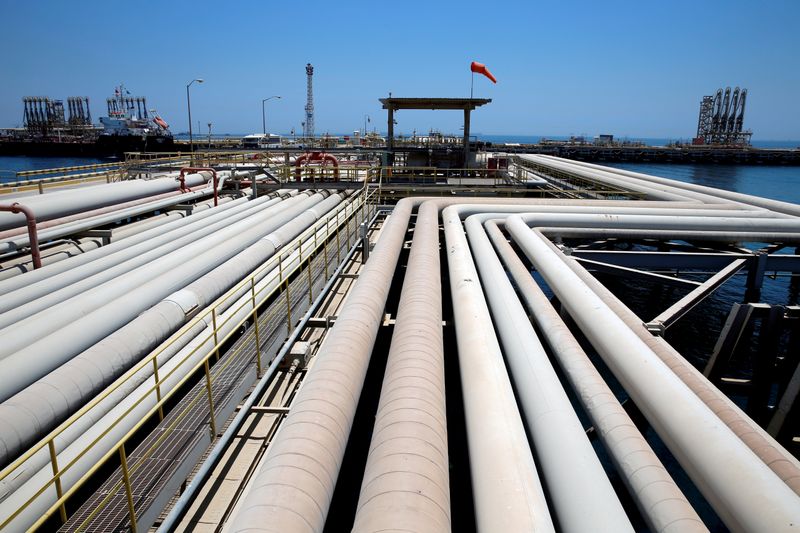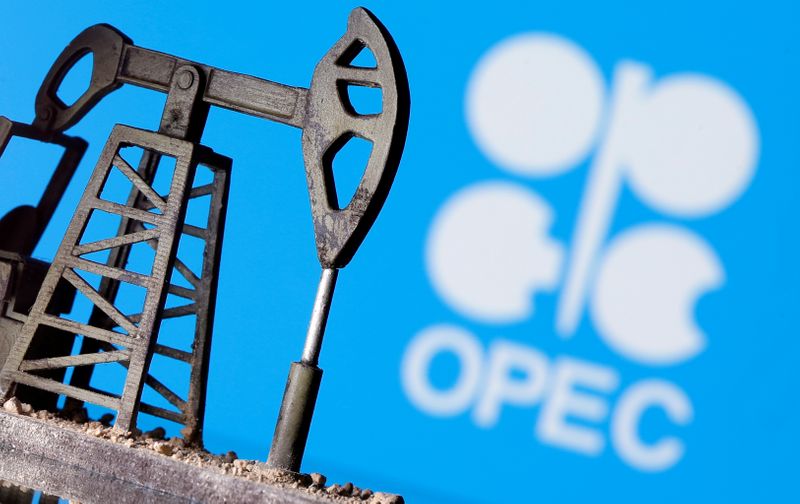By Alex Lawler
LONDON (Reuters) - OPEC oil output has risen for a third month in September, a Reuters survey found, as a restart of some Libyan installations and higher Iranian exports offset strong adherence by other members to an OPEC-led supply cut deal.
The 13-member Organization of the Petroleum ExportingCountries pumped 24.38 million bpd on average in September, thesurvey found, up 160,000 bpd from August's revised figure and a further boost from the three-decade low reached in June.
An increase in OPEC supply since August and concerns of a new demand hit as coronavirus cases rise have weighed on oil prices, which have fallen 10% in September to near $40 a barrel. OPEC is monitoring Libyan output, which has failed to sustain restarts in the past.
"While demand struggles to keep up, supply is rising," said Paola Rodriguez-Masiu, analyst at Rystad Energy. "Libya's production is coming back."
Libya and Iran are two of the OPEC members exempt from an supply pact by OPEC and allies including Russia, known as OPEC+. The pact has helped to boost prices in 2020 from historic lows in April as the coronavirus crisis destroyed demand.
OPEC+ from May 1 made a record cut of 9.7 million bpd, or10% of global output. Since August, the group has been pumping more as the cut tapered to 7.7 million bpd due to a partial demand recovery, of which OPEC's share is 4.868 million bpd.
In September, OPEC countries bound by the deal delivered 101% of the pledged reduction, the survey found, up from 100% in August.
LIBYA, IRAN
September's increase means OPEC is pumping about 2 million bpd more than June's figure, which was the lowest since 1991 based on Reuters surveys and OPEC data.
Libyan production is rising after Eastern Libyan commander Khalifa Haftar said on Sept. 18 his forces would lift their eight-month blockade of oil exports. The survey found output increased on average by 70,000 bpd in September.
Iranian supply rose by 120,000 bpd as exports have increased in September in defiance of U.S. sanctions, according to the average of assessments based on tanker tracking that fall into a wider range than in previous months.
One of them, Tanker Trackers, sees a surge in Iranian exports in September, while two other firms had much smaller increases and Refinitiv Eikon shows a decline.
Venezuela, the third OPEC member exempt from the supply cut, also managed to supply more in September depite U.S. sanctions and a long-term decline in output.
Among the OPEC members bound by the supply pact, Angola delivered September's biggest increase of 60,000 bpd because of higher exports.
The largest drop came from the United Arab Emirates,which pumped more than its quota in August. Industry sources said the reduction suggests the UAE is compensating for its August increase, as sources had earlier said it would.
Top exporter Saudi Arabia kept output steady at 9 million bpd, sources in the survey said. Iraq and Nigeria, laggards in previous months of the OPEC+ deal, both kept a lid on output and posted high compliance. Kuwaiti supply was also steady.

The Reuters survey aims to track supply to the market and isbased on shipping data provided by external sources, RefinitivEikon flows data, information from tanker-trackers such asPetro-Logistics and Kpler, and information provided by sourcesat oil companies, OPEC and consultants.
